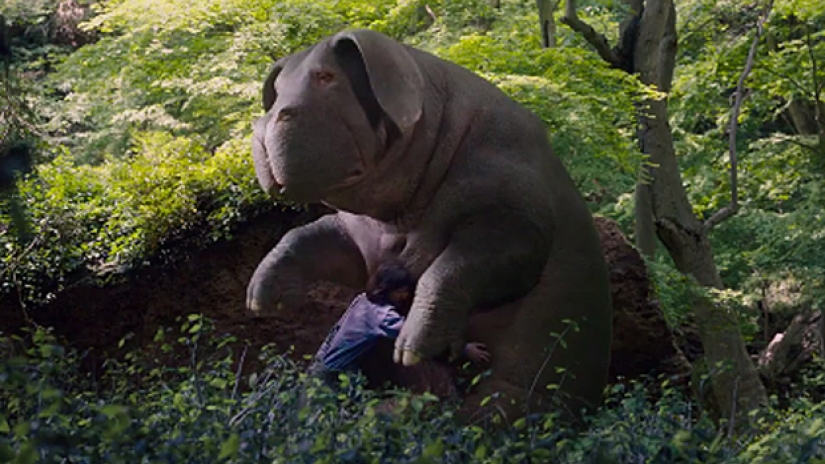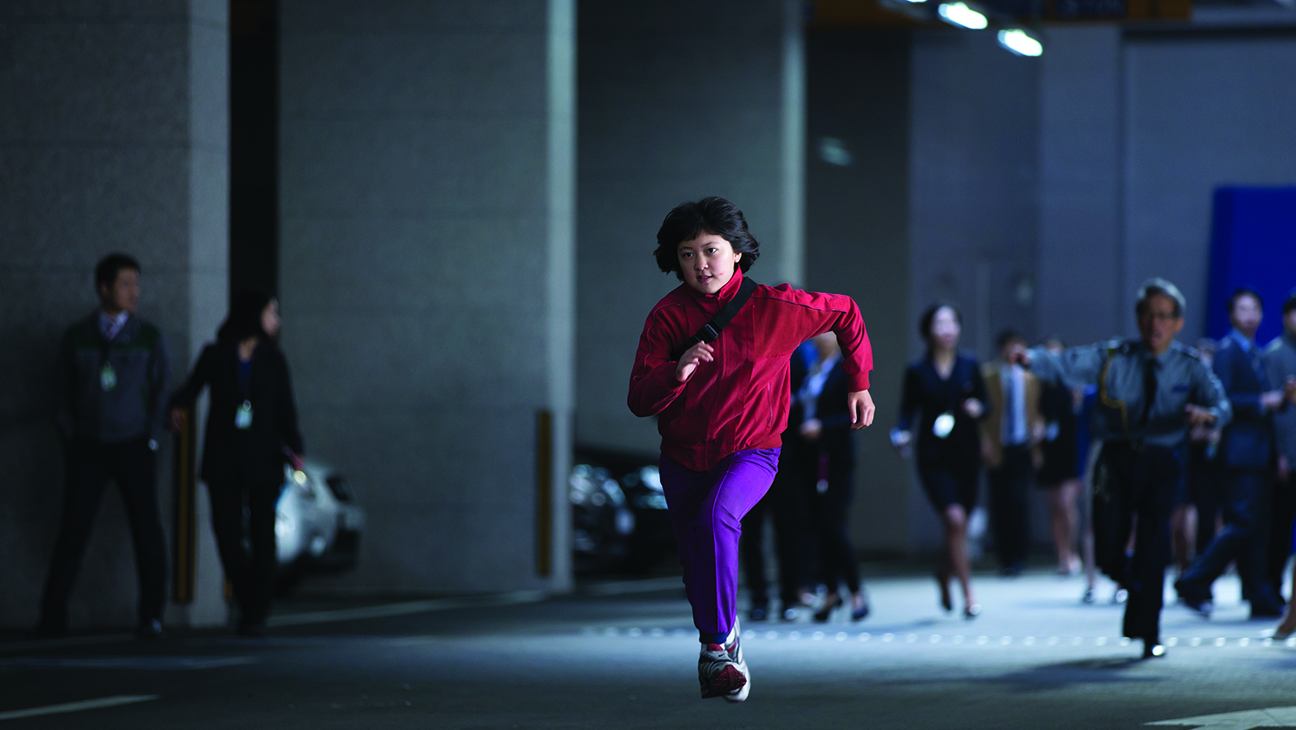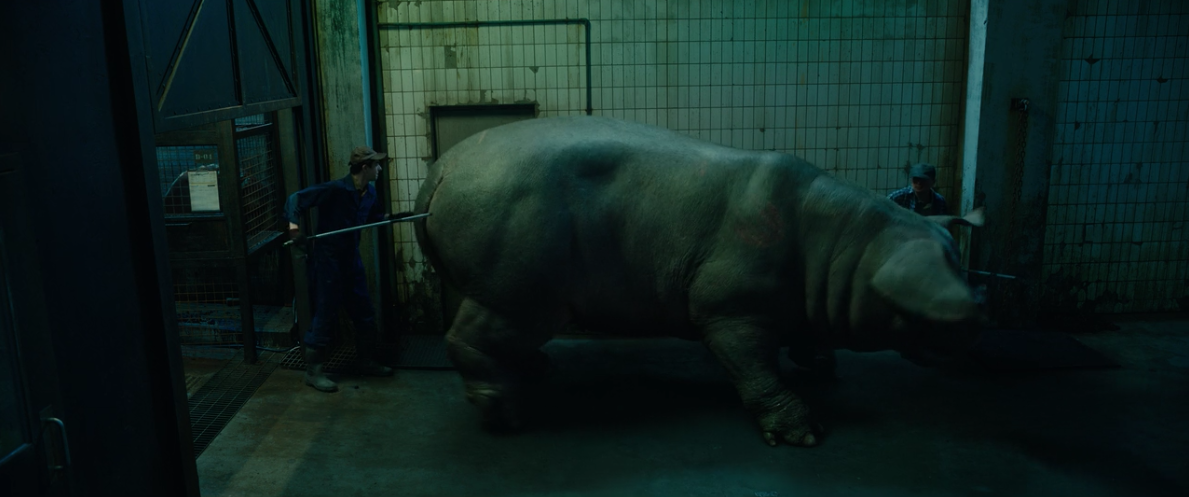The sixth film from Korean master director, Bong Joon-Ho, is an exuberant action movie with a distinct undercurrent of clever, corporate satire. Misinterpreted as vegan propaganda, Okja is both a heartwarming story and an anti-Capitalist cautionary tale that seamlessly transitions between comedy, graphic violence and social commentary.

The film revolves around the heart-warming relationship of a young Korean girl, Mija (Ahn Seo-hyun), and her beloved pet super pig, Okja; a connection that teeters between parent, caretaker and best friend. An evocative friendship in line with those expertly portrayed in Hayao Miyazaki’s Spirited Away and My Neighbour Totoro. But all those familiar with films that hinge on the close bond between a child and pet will be braced for looming trauma.

Okja opens with antagonist Lucy Mirando (Tilda Swinton) launching a charm offensive with the press, detailing her plans to steer the Mirando Corporation away from the ‘atrocities’ her father (and former CEO) have committed and towards a new eco-friendly and natural business structure. Bong plays into the dominant strain of scepticism towards multinational corporations. Lucy Mirando’s presentation is coated in the shiny and slick glow of corporate power from her blinding white teeth and plastered on smile to the dazzling infographics behind her; a smokescreen for diabolical intentions if we ever saw one.

Mirando spins a modern day miracle fairytale from the discovery of super piglets to Mirando’s project of releasing them to far-flung places around the globe to be raised by farmers in an experiment into free-range rearing. The project is to culminate after ten years with a very public super-pig beauty pageant/special television event hosted by Jake Gyllenhaal’s Dr. Johnny Wilcox, an abrasive and quirky television veterinarian.
Lucy Mirando touts her company as an ‘eco-friendly’, ‘non-GMO’ alternative in the ‘livestock industry’ – a likely dilution of ‘slaughterhouse’. But we soon learn that these claims are completely false, and the super pigs were in fact genetically-engineered. Does the real-life Monsanto Corporation ring any bells?
The arrival of the vet with Mirando flunkies in tow to the lush Korean mountaintop forests abruptly brings an end to the gorgeous pastoral interlude of Mija and Okja’s daily life. From there the film launches into a madcap adventure as Mija finds herself caught in the crosshairs of Mirando Corporation’s forceful repossession of Okja and the agenda of the Animal Liberation Front (ALF), a self-righteous and earnest (if somewhat hypocritical) militant group.

As Mija embarks on her emotional and action-packed, cross-global mission to save Okja from becoming Lucy Mirando’s next batch of jerky or a pawn of the ALF, the film launches its own statement about the exploitation of the underdog and the casualties of capitalist gain. First and foremost, the super pigs are martyred as victims of animal cruelty and the underlying brutality of mass meat production and consumption. Despite the fact these creatures are obviously CGI-rendered, the heart-wrenching realisation that they are conscious of their suffering and pain drives the “meet your meat” element to this film.
Yet, while it seems the film hurtles dangerously towards vegan propaganda, Bong invokes his less-than-subtle anti-Capitalist sentiment. The super pigs are indubitably the metaphorical and literal victims of capitalist gain, while Mija is a symbol for the proletariat as she is continually exploited by the Mirando Corporation in their efforts to literally profit off the flesh of others.

It’s interesting and somewhat ironic that Netflix elected to endorse a film that blatantly cautions against big corporations masquerading as beacons for positive change. Okja reminds us to be wary of the ‘fake woke’; the companies and individuals claiming to instigate positive change with alluring, contemporary rhetoric.
Jake Gyllenhaal’s convivial character, Dr. Johnny Wilcox, is symbolic of this ‘fake woke’ mentality. ‘Eco-friendly’, ‘livestock industry’, ‘non-GMO’ are the kid-friendly, cartoon band-aids we slap on to distract from the grisly details lurking just below the surface.
Bong’s Okja further instils his remarkable directorial talent. While the subject matter is confronting at times, the film coherently transitions between moments of light-hearted comedy and graphic portrayals of violence and heartbreaking abuse without detracting from the overall message.
Okja is at the very least an amusing and heartwarming tale of a young girl embarking on a cross-global mission to rescue her pet pig. However, it is impossible to ignore Bong Joon-ho’s insightful commentary of inherent capitalist oppression and the barbaric treatment of animals bred for food consumption. The irony of that sentence isn’t lost on us…
Okja is now available on Netflix. A quick heads-up to parents: this film contains coarse language and rather graphic scenes of animal cruelty.






